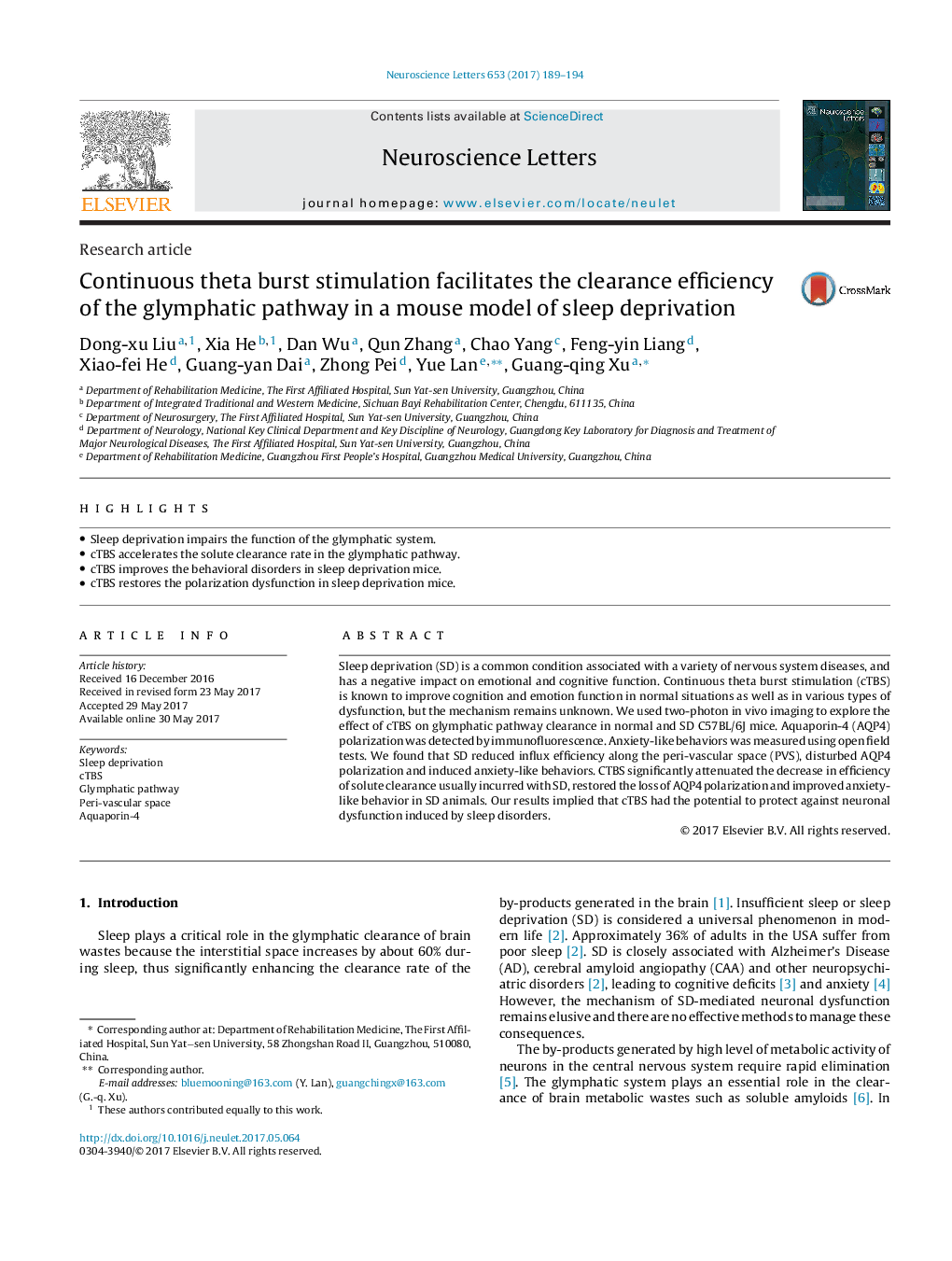| Article ID | Journal | Published Year | Pages | File Type |
|---|---|---|---|---|
| 5738129 | Neuroscience Letters | 2017 | 6 Pages |
â¢Sleep deprivation impairs the function of the glymphatic system.â¢cTBS accelerates the solute clearance rate in the glymphatic pathway.â¢cTBS improves the behavioral disorders in sleep deprivation mice.â¢cTBS restores the polarization dysfunction in sleep deprivation mice.
Sleep deprivation (SD) is a common condition associated with a variety of nervous system diseases, and has a negative impact on emotional and cognitive function. Continuous theta burst stimulation (cTBS) is known to improve cognition and emotion function in normal situations as well as in various types of dysfunction, but the mechanism remains unknown. We used two-photon in vivo imaging to explore the effect of cTBS on glymphatic pathway clearance in normal and SD C57BL/6J mice. Aquaporin-4 (AQP4) polarization was detected by immunofluorescence. Anxiety-like behaviors was measured using open field tests. We found that SD reduced influx efficiency along the peri-vascular space (PVS), disturbed AQP4 polarization and induced anxiety-like behaviors. CTBS significantly attenuated the decrease in efficiency of solute clearance usually incurred with SD, restored the loss of AQP4 polarization and improved anxiety-like behavior in SD animals. Our results implied that cTBS had the potential to protect against neuronal dysfunction induced by sleep disorders.
